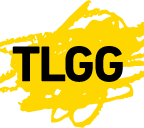“Yawning Gaps in Many Areas” — Digitalization in Germany
By TLGG Consulting
Berlin, May 2019 — In a joint survey, the marketing and public opinion research firm Civey and the Berlin digital consultancy TLGG Consulting polled around 5000 Germans about their use of and attitudes towards digital options. The results are revealing: in many areas, digital solutions still have not yet permeated into people’s everyday lives.
When it comes to the subject of digitalization, Germany still has yawning gaps in many areas — and the efforts of politicians often pass right by citizens’ needs. This is the conclusion drawn by the joint study of the firms in Berlin. Their detailed results are now available, along with the commentaries by experts from the startup scene, research, and the economy.
Essentially, they all reveal that in the health-care sector, digitalization — thus far — has hardly even really reached its clientele. A total of 80.9% of those surveyed, according to their own statements, have still never communicated with their physician, therapist, or pharmacist via email, messenger, or video telephone link. The figures from rural areas are even clearer, where at 84.9% the figure is at its highest — even though the concentration of health-care choices is lower than in metropolitan areas.
Many doctors, explains health expert Matthias Mirbeth from TLGG Consulting, simply lack knowledge of how to implement digital services. In this respect, he asserts, today’s physicians have long been part of a new ecosystem, with sophisticated patients and digital solutions. Yet up to now, there has been too little thought given in Germany to specific options and applications that would be prove beneficial to patients. According to Mirbeth, “The pressure is obviously not great enough.”
Germany still has yawning gaps in many areas — and the efforts of politicians often pass right by citizens’ needs
The debate about new mobility solutions also passes right by the reality of German life. For instance, 76.6% of the population still regards owning a car to be absolutely necessary. In rural areas, the need for it is especially great: there, 89% of those surveyed cannot imagine life without a car. According to Andreas Knie, traffic expert at the Technical University of Berlin, it is the authorities at the county or district level, above all, who will have to advance change: “Mobility is about local politics,” he says. But German policy, he says, is still imprisoned in the old “one citizen, one car” thinking. It will have to create incentives and more vigorously promote time-sharing models and parking spaces for electric cars, adds TLGG’s Hannes Kunstreich.
The lack of alternatives in rural areas, explains traffic expert Knie, is also a problem with regard to climate protection. “That is precisely where the utilization rates are especially low — often, there is just one person sitting in the car.” Yet the poll shows that in rural areas, environmental friendliness plays virtually no role in the choice of a mode of transportation. Only 3.3% specify that criterion as an important one. In cities, where the range of options is greater, environmental criteria have a greater relative value, of 16%.
In Germans’ view, public authorities suffer from an especially severe need to catch up digitally. Among those surveyed, 54.9% would like to see an immediate expansion of existing public options. A total of 42.2% say that they are “less satisfied” or “not at all satisfied” with the online options offered by their cities. Up to now, 17.5% have not made any use of digital access to authorities — in rural areas, the figure is 19.1%.
Public authorities suffer from an especially severe need to catch up digitally
According to Lucas Gerrits of TLGG Consulting: “Frequently, municipal governments lack the personnel, the financial wherewithal, and the methodological know-how to expand digital measures.” Above all, he says, in larger cities it is unclear precisely where responsibilities lie. But deficient digital options, he says, weaken confidence in the public sector. “Citizens ask themselves, quite rightly so, why it takes only six hours for their Amazon packages to arrive, yet they still have to wait weeks on end for appointments and for paper-based documentation.”
In order to advance digitalization, the necessary structures and a new culture would have to be created. A solution would be to develop digital strategies with citizen participation, in order to place their needs at center stage. “Digitalization cannot be a niche project for nerds,” says the TLGG expert, “but rather has to become a joint project of local governments in order for it to function viably.”
